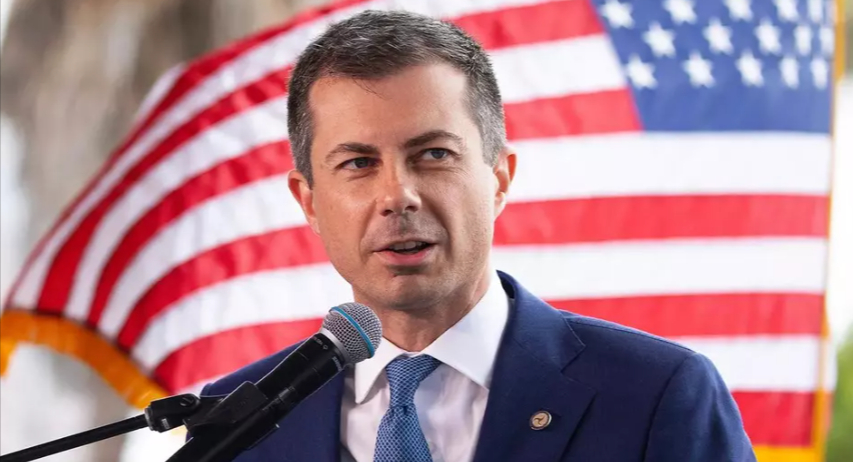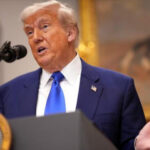Although Donald Trump is less than four months into his second term, Democrats are already looking ahead to the 2028 presidential election, spurred by their losses in 2024 and growing unrest over Trump’s sweeping agenda. The Democratic Party is in search of a clear leader who can unite its base, re-energize disillusioned voters, and mount a serious challenge to the Republican grip on power. As a result, early positioning is well underway, with numerous potential contenders stepping into the spotlight.
Early Movers and Key Contenders
Pete Buttigieg, former Transportation Secretary and 2020 presidential candidate, is signaling renewed interest in national politics with a town hall in Iowa — a symbolic move given the state’s historic role in presidential nominating contests. His decision not to run for the Senate in Michigan adds to speculation that he is eyeing another White House bid.
Kamala Harris, the former vice president and 2024 Democratic nominee, remains a prominent figure. Though her 2024 loss to Trump dampened her momentum, she is still considered a potential frontrunner due to high name recognition and strong connections in deep-blue California. Harris is weighing a gubernatorial run in 2026 but hasn’t ruled out another presidential campaign.
Gavin Newsom, California’s term-limited governor, remains a high-profile national figure. A loyal Biden and Harris surrogate during the 2024 campaign, Newsom has made efforts to “Trump-proof” California but has also moderated on some issues. His hosting of conservatives like Charlie Kirk and Steve Bannon on his podcast indicates he’s broadening appeal ahead of a likely 2028 run.
J.B. Pritzker, Illinois’ governor, has emerged as a leading Democratic critic of Trump and a prominent voice in national Democratic politics. His recent trip to New Hampshire and work defending progressive policies in Illinois have added to speculation about a 2028 run, though he must first decide whether to seek a third term in 2026.
Gretchen Whitmer, governor of Michigan, once considered a rising star, remains a potential contender despite some intra-party backlash over her recent White House visit perceived as too conciliatory toward Trump. She was a strong surrogate for Harris and is term-limited, which may free her for a presidential run.
Josh Shapiro, Pennsylvania’s governor, was a top contender to be Harris’s 2024 running mate. While he ultimately wasn’t chosen, his campaigning efforts in key swing states, including a high-profile visit to New Hampshire, fueled 2028 speculation. He is also up for re-election in 2026 but remains one of the party’s strongest communicators.
Wes Moore, the charismatic governor of Maryland, has consistently denied interest in 2028 but remains on Democrats’ radar. A military veteran, Rhodes Scholar, and former nonprofit executive, Moore brings a compelling resume and national appeal. His scheduled appearance in South Carolina — a key early primary state — keeps the speculation alive.
Andy Beshear, the popular Democratic governor of deep-red Kentucky, has left the door open to a 2028 run. He has suggested that he might pursue the presidency if he believes he can unify a divided country. His electoral success in a conservative state adds to his viability as a centrist Democrat.
Alexandria Ocasio-Cortez, the firebrand congresswoman from New York, has gained attention after turning 35 — the minimum age to run for president. Her joint rallies with Sen. Bernie Sanders have reignited speculation about her ambitions. Some believe her star power and progressive bona fides make her a top contender, though others question her electability in a general election.
Senators in the Mix
Several sitting senators are also considered possible 2028 hopefuls. Raphael Warnock of Georgia has gained prominence as a moral voice and consistent Trump critic. Cory Booker of New Jersey, known for his oratory and long-standing presidential ambitions, drew national attention recently with a marathon protest speech against Trump’s policies.
Chris Murphy of Connecticut, a vocal advocate for gun reform and reclaiming working-class voters, is seen as a potential dark horse. His recent landslide re-election gives him the flexibility to pursue a national campaign without risking his Senate seat.
Ro Khanna, a House member from California, continues to travel nationally, hosting events in GOP strongholds and clashing with Trump allies. His willingness to campaign aggressively in red districts, including the home turf of Vice President JD Vance, demonstrates his national aspirations.
Wild Cards and Outsiders
A few nontraditional candidates have also sparked interest.
Stephen A. Smith, the outspoken ESPN commentator, has made waves by floating a potential presidential run. While still speculative, Smith has captured public attention and even drawn a response from Trump, suggesting his rhetoric is being taken seriously — at least as a cultural influencer.
Mark Cuban, the billionaire entrepreneur and former Harris supporter, remains on the radar. Known for his business acumen and independent streak, Cuban has long been discussed as a possible third-party or Democratic candidate.
Former Governors and Others
Roy Cooper, the former North Carolina governor, could be a Senate candidate in 2026, but there’s talk of a broader national role given his years of experience in both executive and legal positions.
Michelle Lujan Grisham, New Mexico’s governor, and Tim Walz, Minnesota’s governor and Harris’ 2024 running mate, are also being floated as possible 2028 contenders. Both bring executive experience and were active in the last campaign cycle.
Conclusion: A Wide-Open Field
The Democratic bench for 2028 is deep, varied, and ideologically broad — from progressives like AOC and Ro Khanna to moderates like Beshear and Shapiro. What unites them is a shared desire to move beyond the setbacks of 2024 and offer a compelling alternative to Trump’s second-term agenda.
While no clear frontrunner has emerged, the political maneuvering is well underway. The results of the 2026 midterms and the trajectory of Trump’s presidency will heavily influence who ultimately steps forward. For now, the Democratic Party is in search of its next leader — one who can unify its fractured base, win back lost voters, and reclaim the White House in 2028.











